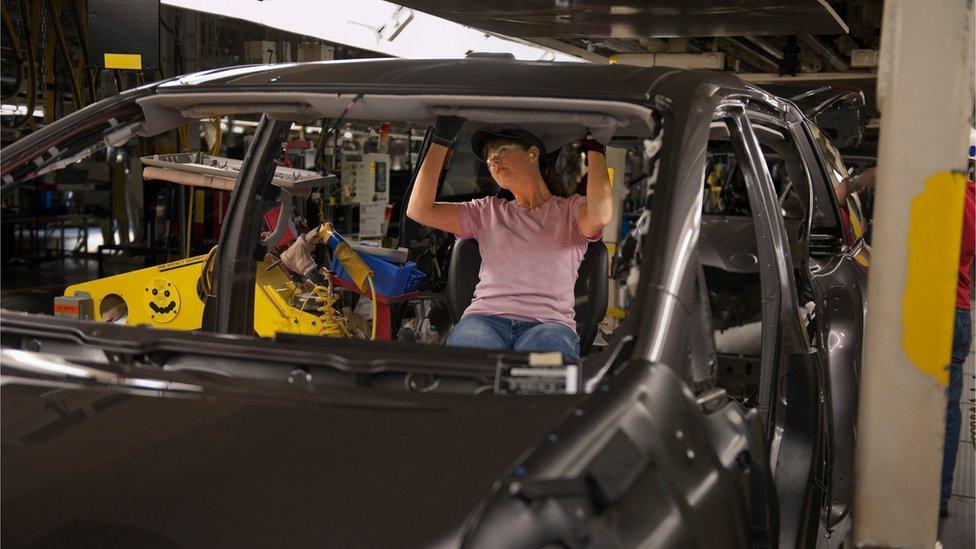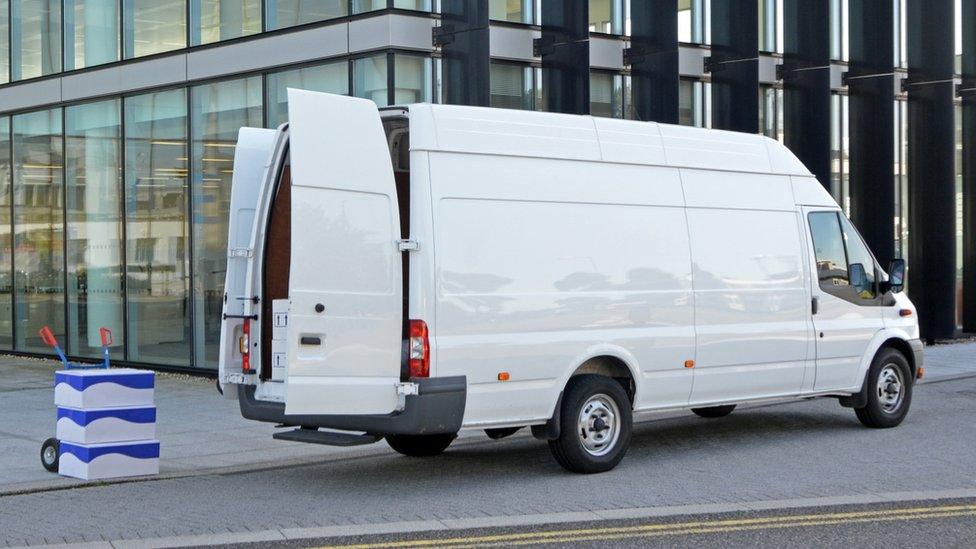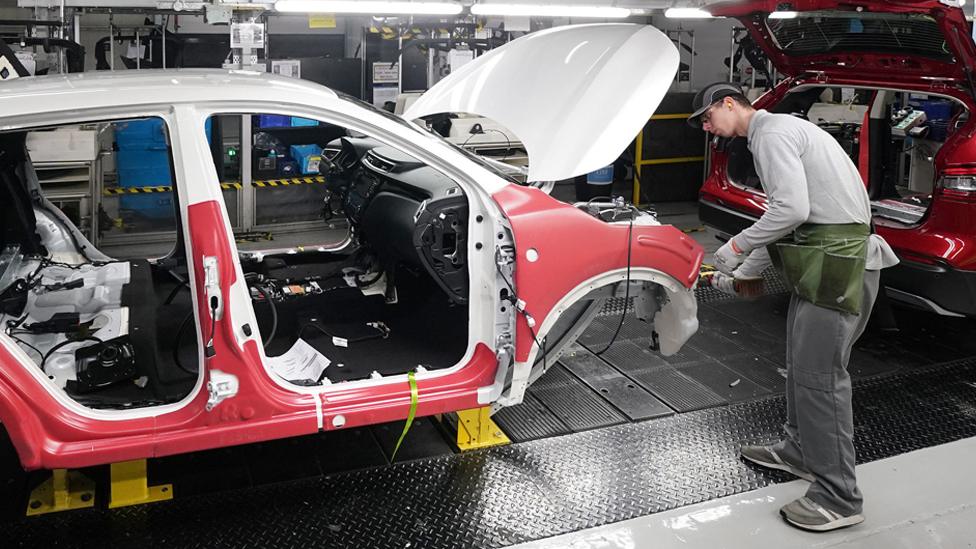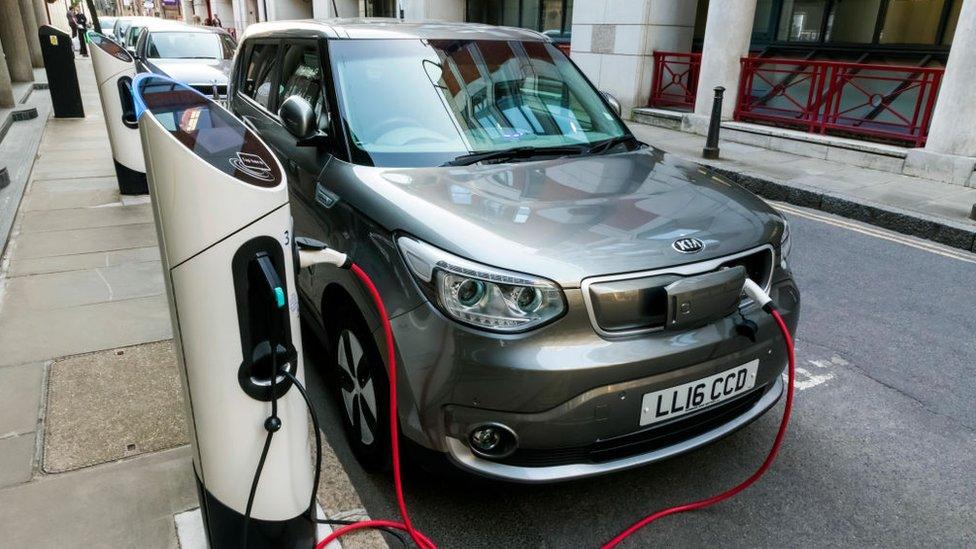Car production hit by 'pingdemic' and global chip shortage
- Published
- comments

UK car production is still much lower than it needs to be due to shortages of staff and semiconductors, the industry is warning.
The Society of Motor Manufacturers and Traders (SMMT) said just 69,097 cars were produced in June, the lowest since 1953, with the exception of last year.
The trade body is calling for urgent assistance to exempt staff pinged by the NHS Covid app.
SMMT said the industry was "desperately trying to get back to full capacity".
The picture "didn't look particularly pretty", the SMMT's chief executive Mike Hawes said, even though production numbers were up on June 2020, just after the first coronavirus lockdown ended.
"We were expecting to make just over 1.05 million cars this year, but due to semiconductor shortages and other issues, we will be about 100,000 cars lower," he said.
"It's difficult to give a picture of the whole industry, but anecdotally, some companies have between 5-30% of staff away self-isolating."
Ideally, the UK car industry needed to get back to producing between 1.2 million to 1.3 million vehicles a year, Mr Hawes added.
UK car plants turned out 498,923 cars in the first half of 2021, 38.4% lower than the five-year average. This is equivalent to losses of about £8.5bn, the SMMT said.
Some firms had resorted to reducing shifts, but the true impact of the staff shortages would not be felt until the annual car plant summer shutdowns ended, it added.
The SMMT is calling on the government to bring forward the 16 August target date for exempting fully vaccinated adults from self-isolation, as well as introducing a "test to release" scheme to support those employees not yet fully vaccinated.
"If it can't be brought forward, what we need to know is, if you took a PCR test two to three days before 16 August, would it count?" said Mr Hawes.
'Very difficult time'
There was plenty of demand for UK car exports, he added, but key issues for the industry included "friction" at the borders as a result of Brexit and rising logistics costs due to the pandemic.
He said companies also felt consumers would only be persuaded to switch to electric cars if the charging infrastructure was there to support them.
Mr Hawes said it was "still a very difficult time for the industry", and that the impact of the global semiconductor shortage was likely to last into 2022.
Semiconductor makers cut production during lockdowns because "it was unclear how long the European markets would be closed for [but] the shutdowns were not as long as anticipated", Mr Hawes explained.
"Some of the countries that produce them now have rising Covid cases so we don't know how that will affect production going forward."


Well, the figures are better than last year's at least - but considering how badly the industry was affected by lockdowns last year, that really isn't saying very much.
Demand isn't the problem. The bulk of UK-built cars are sold overseas, and manufacturers say there's plenty of appetite for them. But two issues, both linked to the pandemic, have got in the way of the recovery: the global semiconductor shortage and the shortage of staff resulting from the so-called 'pingdemic'.
Ultimately, though, these are relatively short-term problems, and the industry will get over them. The bigger issue for UK car manufacturing is how to attract new investment.
With governments in the UK and in Europe making plans to ban the sale of new petrol and diesel cars within a few years, the race is on to replace the production lines that will soon become obsolete.
The hiatus caused by Brexit meant manufacturers were reluctant to commit to the UK, just as the electric cars revolution was taking shape. Now, with new investments announced at Nissan and Vauxhall, the situation has changed.
But with other countries such as Germany having gone further, faster, the UK still has a lot to do to stake its claim to a significant share of the future electric car industry.

Related topics
- Published5 July 2021

- Published1 July 2021

- Published29 June 2021
